Critically Analyze Islamic Real Estate Investment Trusts (I-REITS)
VerifiedAdded on 2022/12/30
|5
|796
|61
Essay
AI Summary
This essay provides a critical analysis of Islamic Real Estate Investment Trusts (I-REITS), exploring their types and mechanisms. It defines I-REITS as Shariah-compliant real estate investment schemes, highlighting their appeal for investors seeking income, capital stability, and diversification. The essay discusses the governance of I-REITS, emphasizing the roles of stakeholders and the importance of Shariah compliance. It also contrasts I-REITS with conventional REITs, emphasizing the role of Shariah guidelines and principles. The essay references various academic sources to support its arguments, discussing investment strategies and the expectations of returns from rental income and capital appreciation. It also addresses the regulatory frameworks and market dynamics surrounding I-REITS, including the emergence of Islamic financial institutions and the opportunities for developing competitive Shariah-compliant investment products. The essay concludes by highlighting the unique characteristics of I-REITS and their potential for growth in the financial market.
1 out of 5
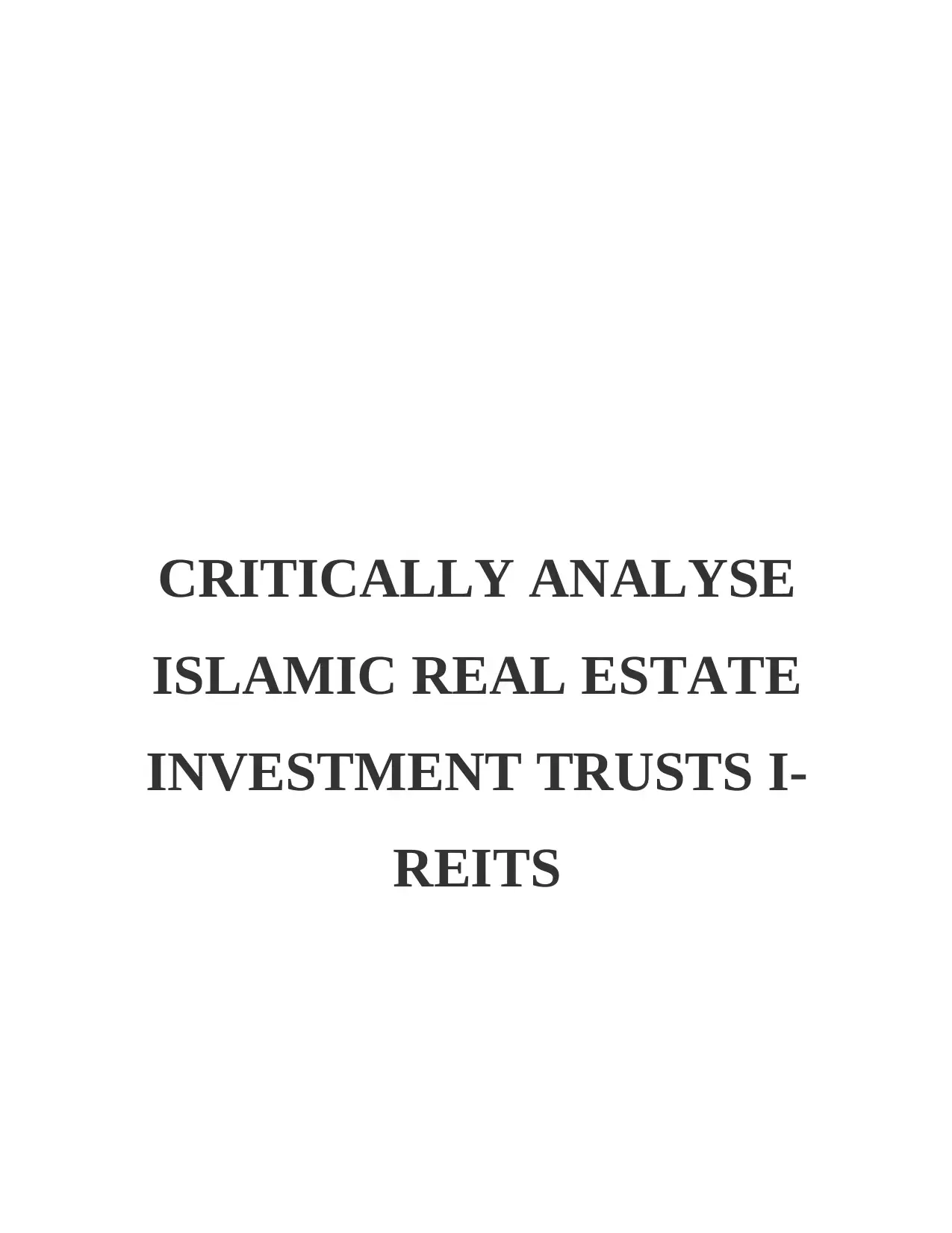
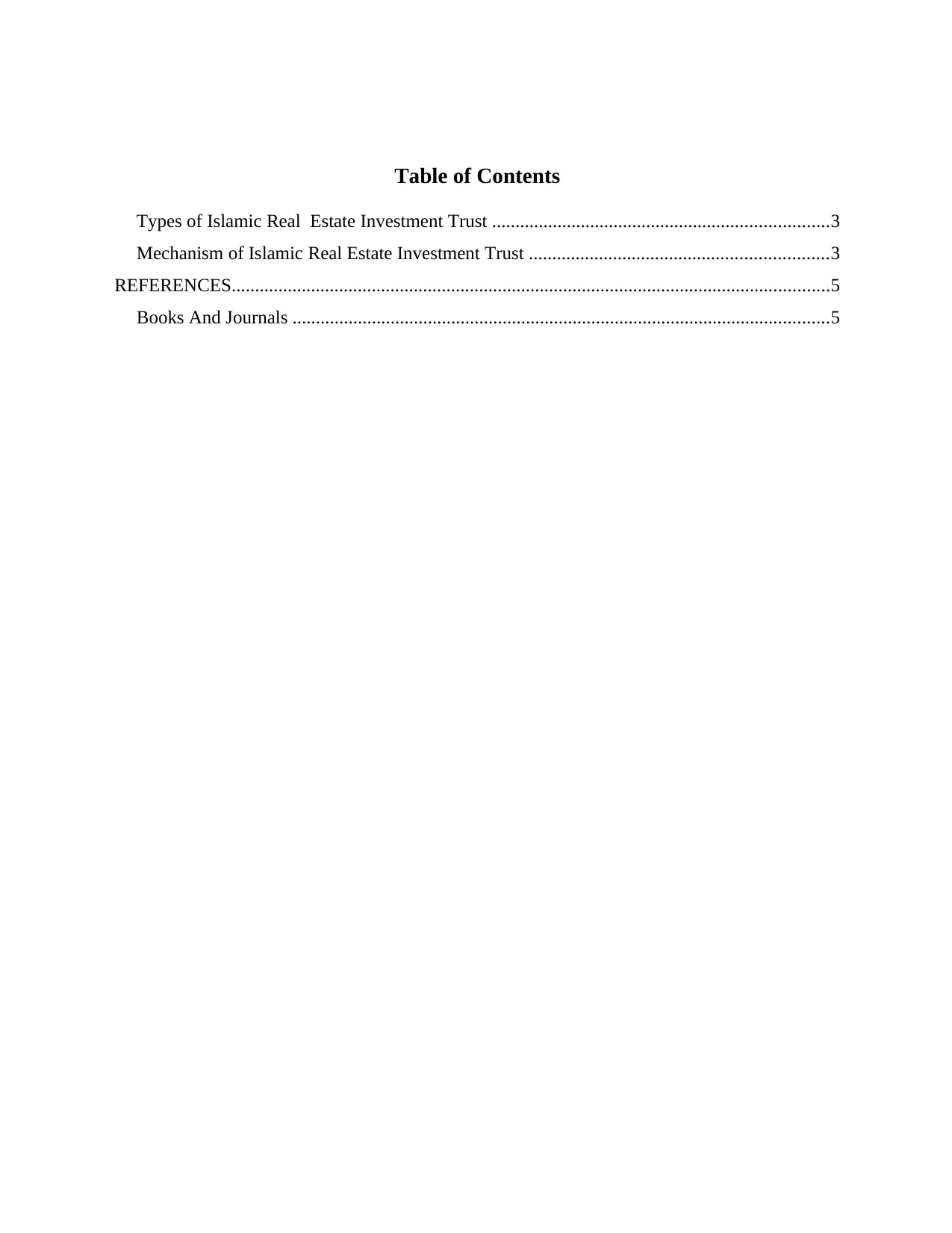
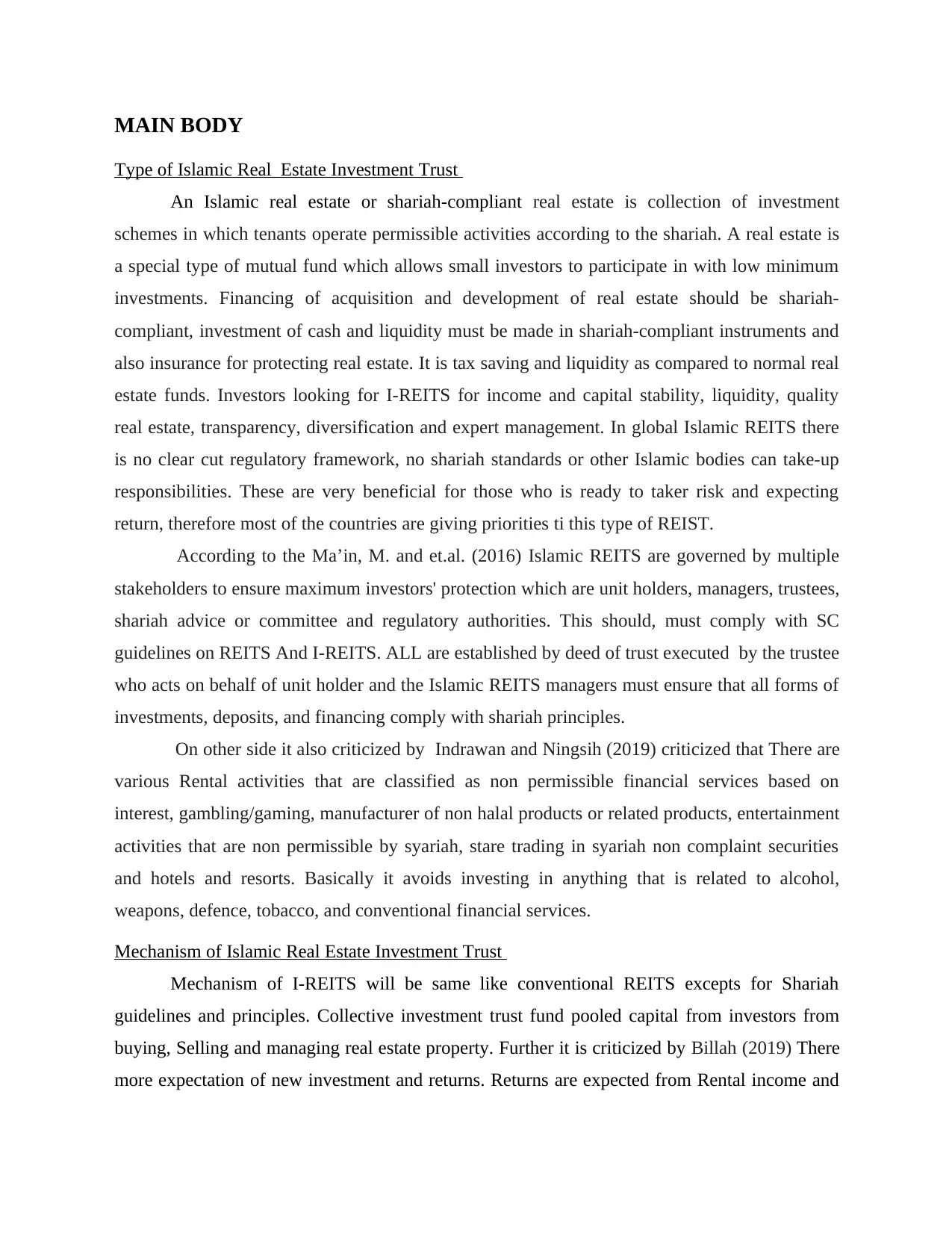

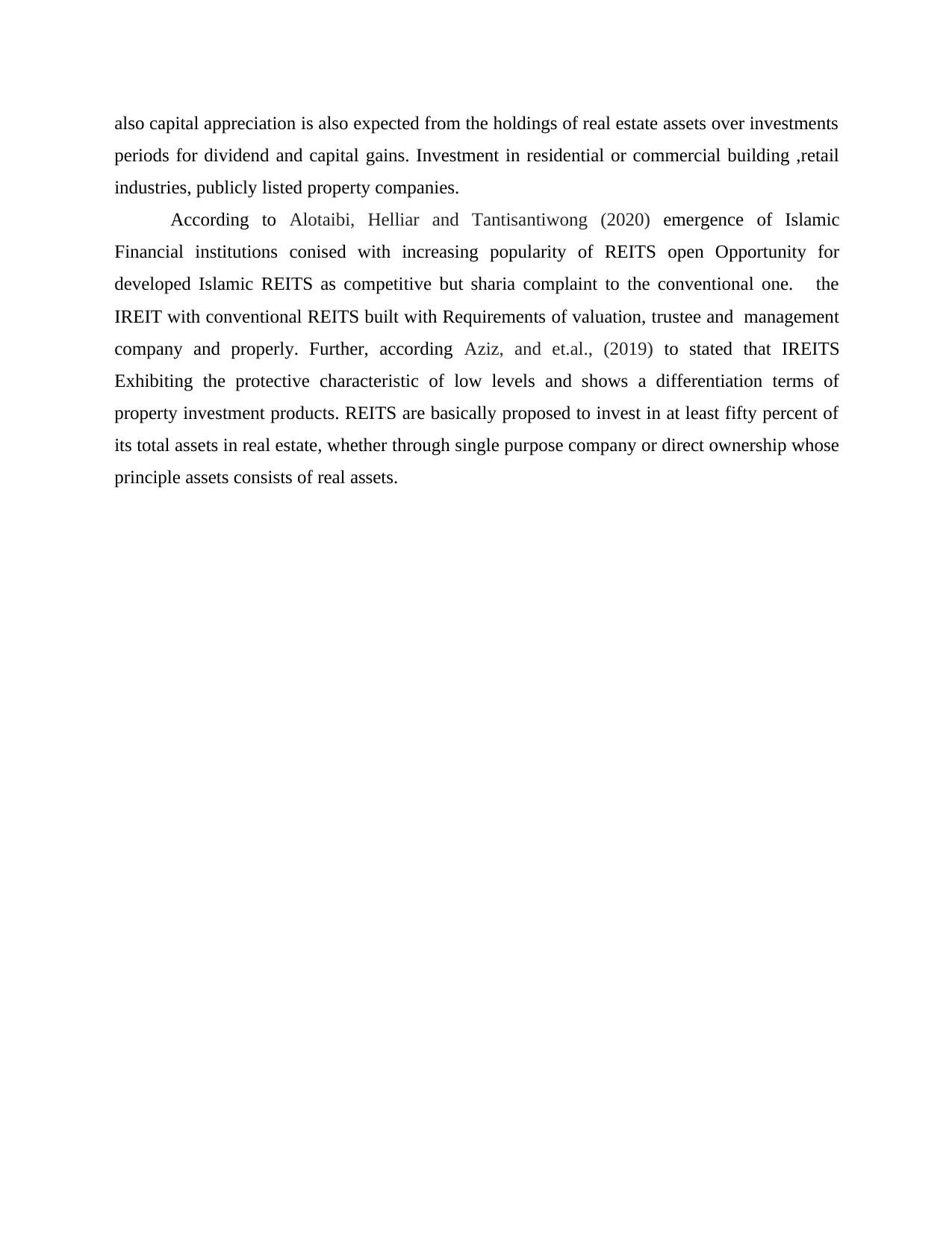
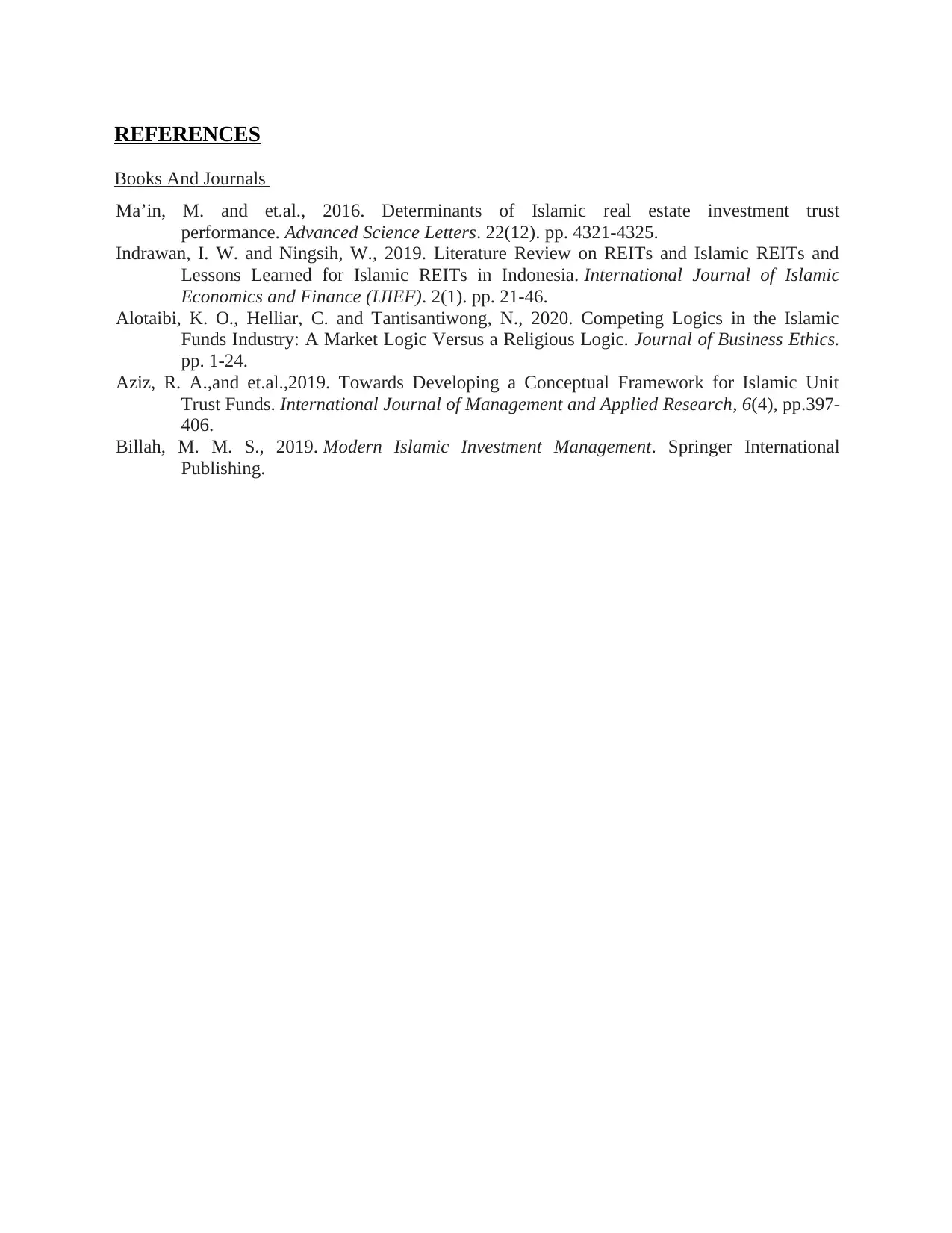
![[object Object]](/_next/static/media/star-bottom.7253800d.svg)